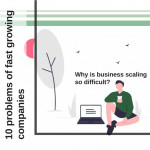«Remote is not just a powerful toolbox…It’s full of fascinating insights into collaboration, innovation, and the human mind».
Leo Babauta, author of Zen Habits: Handbook for Life
Today we prepare something interesting. We make a summary of the book “Remote. Office is not required” if you don't have time to read this book, just use our summary. It takes 5 minutes to read it.
Zillion made a synopsis for those who need a quick guide to organizing remote work and are not very comfortable reading in a clogged subway car on the way to work.
Remote work is becoming an increasingly popular form of work organization. From 2005 to 2011, the number of employees remotely increased in the United States by 73% to 3 million people. Jason Friday and David Heinmeier Hensson, authors of “Remote. Office is not required”, they weigh the pros and cons and share the secrets of effectively organizing remote work.
Why is the classic office format outdated?
The office has become an “interruption zone." When a working day is cut into working minutes, it’s hard to do something meaningful. Scientists confirm that regular trips to and from work make us fat, nervous and unhappy, increase stress, the risk of insomnia, back and neck pain, hypertension, heart attacks and depression. Even 1.5 hours of travel per day is 7.5 hours per week, approximately 300-400 hours per year.
Benefits of Remote Work
Remote work is a pragmatic approach of the organization, which is based on freedom and awareness. It gives businesses and employees a lot of advantages.
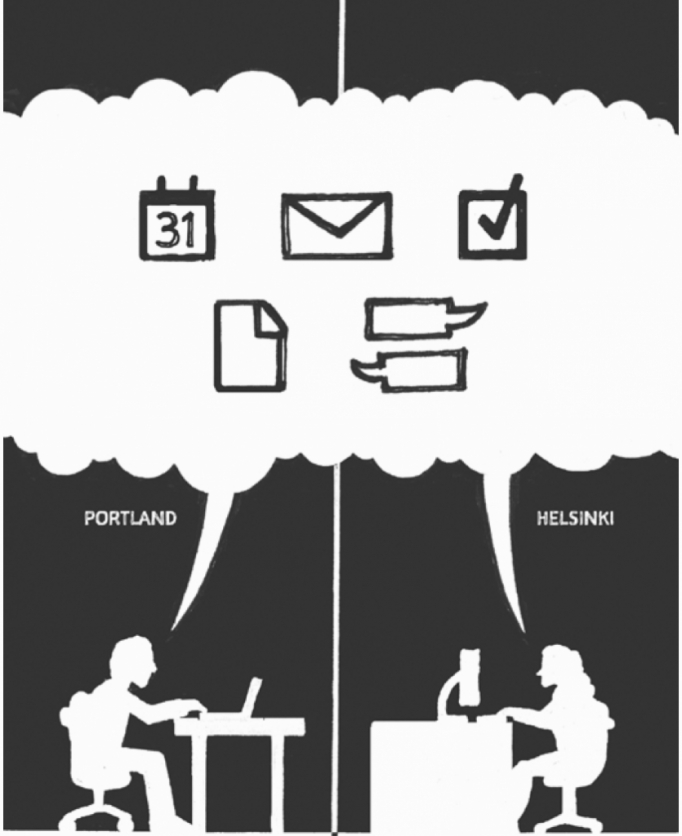
- Remote work allows you to change the scenery - and arouse creativity.
- It gives access to the most talented performers.
- No exhausting trips to and from work - productivity is growing.
- You can control distractions and make sense of the work.
- A flexible schedule is suitable for everyone: “larks”, “owls” and those who need to pick up children from school.
- You can live in different places, travel without burdening with a mortgage.
- The environmental benefits are obvious: an IBM study says that in 2007, through remote work, the company spent 19 million liters less on gas, meaning it prevented more than 450,000 tons of CO2 from being released into the atmosphere.
- Remote work minimizes the number of meetings.
- You can retain a valuable employee who moves to another country or city.
- Remote work speeds up the process of landing the “wrong” people and the appearance of the “right” on board.
- Due to a certain lack of live communication, the value of meetings with colleagues increases.
In the book “Remote. Office is not required. There are some interesting predictions. The concept of remote work will soon put an end to the city’s monopoly. The luxury and privilege of the next 20 years will be the opportunity to leave the city, live wherever you want, and manage your time.
Fears of Remote Work
Most fears associated with remote work are caused by distrust of people.
Where are the performance guarantees?
Who wants to play games, he will find a way in the office, and who wants to work, works at home, this is confirmed by research. If we stop trusting employees, it means that we were mistaken in hiring and we need to look for new ones. Most arguments against remote work are based on the fear of losing control.
What about the fact that people are distracted at home? How to stop being distracted? Simple: you have an interesting job to do.
Large companies do not work remotely?
Most large companies are mired in bureaucracy. And already many large companies are switching to remote work in different formats: IBM, S.C. Johnson & Son, Accenture, eBay.
How to maintain a corporate culture?
In fact, these are not New Year's corporate parties, but a set of values. How do we talk with customers and with each other? How do we relate to the quality of products? What workload do we consider correct?
How to get answers from colleagues promptly?
80% of the issues are not as urgent as they seem at first. When asking a question by mail, you will receive an answer in writing and you can save it. With 15% of the questions you can sort out the messenger or chat. The remaining 5% has a telephone.
Badly renovated office
The maintenance of a luxurious office is an “irreversible cost”.
And if the remote work does not fit our industry?
Many examples in the book prove that it is suitable and can be beneficial for companies from many industries (audit, design, film production, consulting, marketing, staffing, legal services, software production, insurance, etc.) and with any size of staff (even more 10,000 people).
How to organize your remote work?
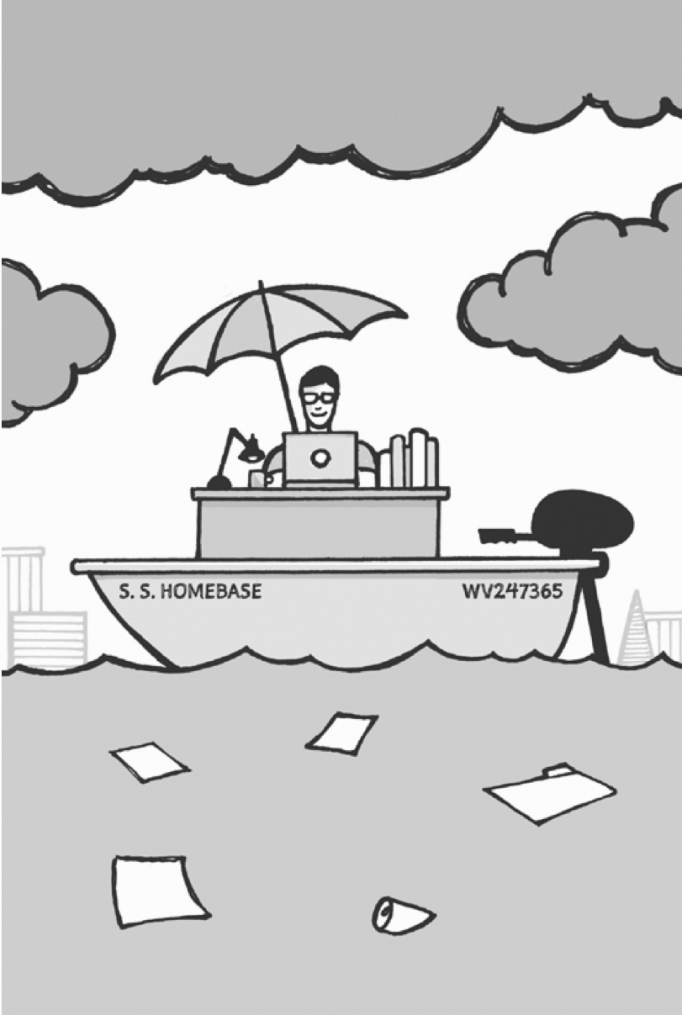
- Equip the workplace ergonomically.
- Set the daily routine.
- A presentable look will help you get into the working mode.
- Break the day into pieces (“routine”, “work with colleagues”, “serious work”).
- Get a “virtual cooler” - an opportunity to relax and “fuss” (tools for creating chats: IRC, Campfire, etc.).
- Use video conferencing and document sharing in open screen mode.
- The important should not be stored on one computer; put documents in the public domain.
- Remotely does not mean home. Choose a comfortable place in the city (cafe, park, coworking).
- Work with clients according to the rules: when negotiating an order, inform that you live far away; Be emphasized available for contact; show what has been done and the process of work, this removes anxiety.
- Maintain a balance between personal life and work. Go out, go to events.
- Be aware of such a threat as forming a habit of doing too much. Ask yourself if you did a good job today. If so, go relax.
- Walk a lot, do fitness.
- Maintain a positive attitude, do not allow aggressive behavior and pessimism.
- Learn to write well - read a lot. It will be necessary to explain intelligibly.
How to manage remote employees?
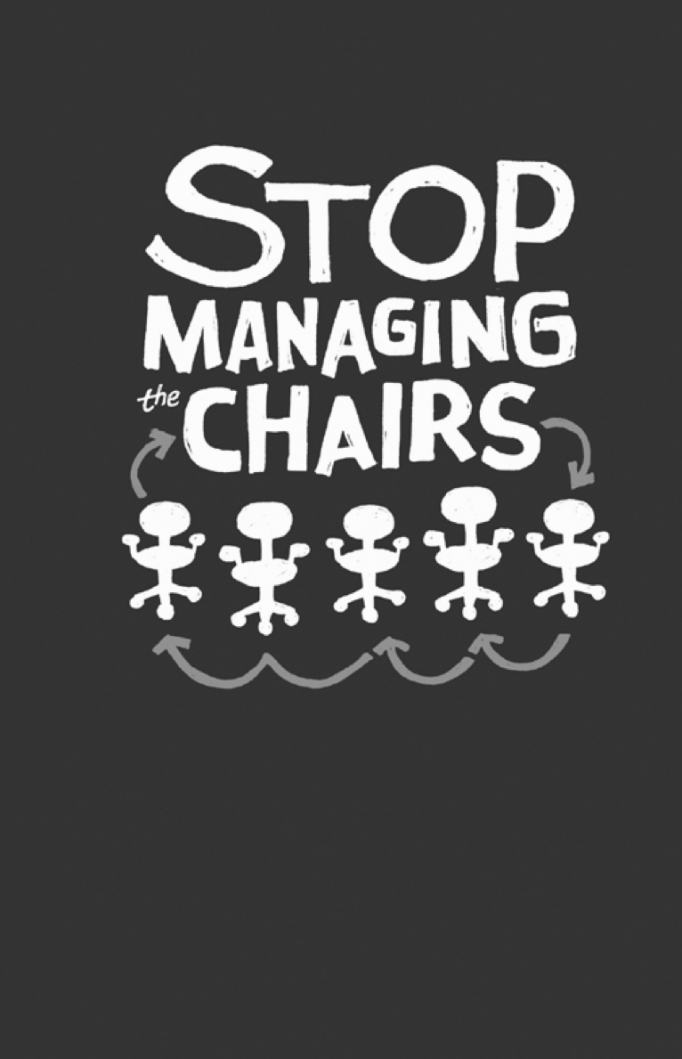
- Distributed team managers need to create a culture of reasonable expectations.
- When you are searching for remote employees, focus on examples of their work, and give test tasks.
- Give access to everything you need to work.
- Let them make decisions on their own - people are able to meet our expectations.
- The task of the leader is not to "graze" employees, but to lead the work and monitor its implementation.
- If you work with both office and remote employees, equalize their opportunities when discussing projects.
- To keep everyone in the general information flow, have a weekly discussion on the topic "What are you working on?"
- Watch for recycling - do not let the work absorb people, otherwise they will burn out. Provide an extra day of rest per week, finance hobbies, and encourage vacations.
- One-to-one informal dialogue is most effective for remote work. State of mind and motivation are fragile things. Keep in touch.
Mixed formats
Practicing remote work, it is not necessary to abandon the office: it can be saved for image purposes and for employees who sometimes want to come to the office. Many companies and employees choose a mixed format of work "office – home" (2 days in the office and 3 days at home). At first, I really like the opportunity not to see colleagues every day, especially to introverts. But then it becomes obvious that at times it is pleasant and useful to chat with colleagues in the same room, conduct a brainstorming session, and discuss ideas. There is another mixed option: in the morning - work in silence at home, in the afternoon - in the office. If you want to understand whether the transition to remote work will be successful, give employees a real opportunity to work remotely for three months, to find their own rhythm.
At the end of the book is a quote from Richard Branson, the founder of the Virgin Group: “Technology is developing so fast that after thirty years, people looking back will wonder how offices could even exist.”

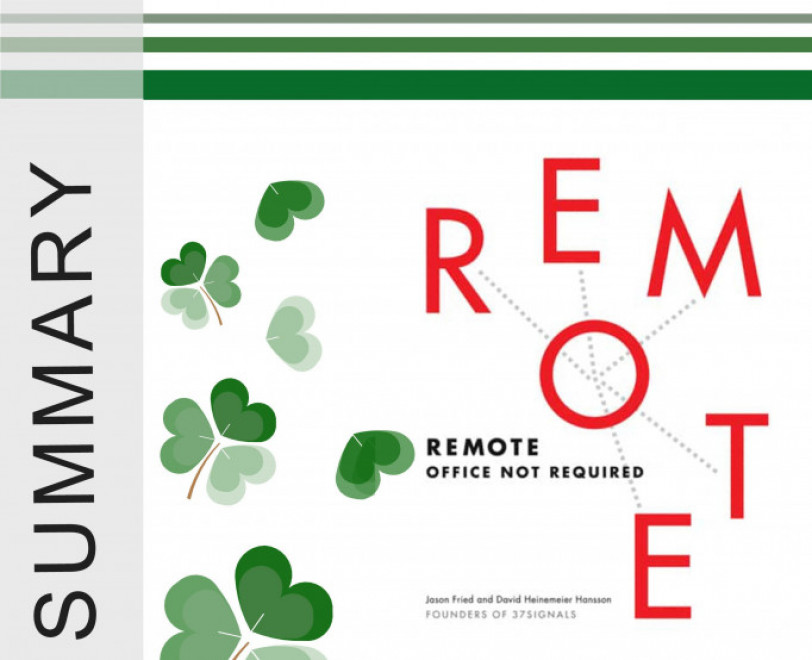
 Posted on Apr 27, 2020 by Anna
Posted on Apr 27, 2020 by Anna
